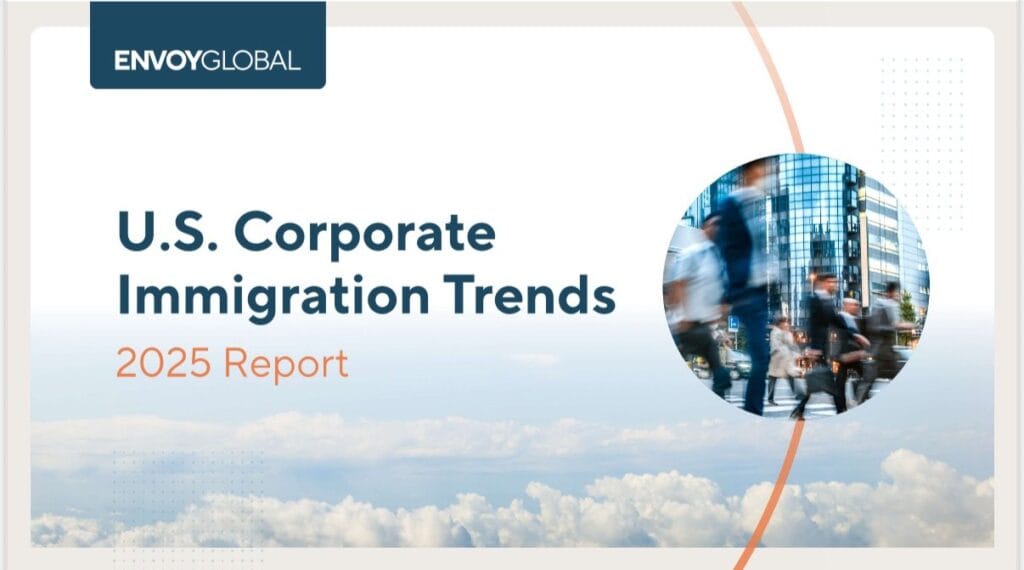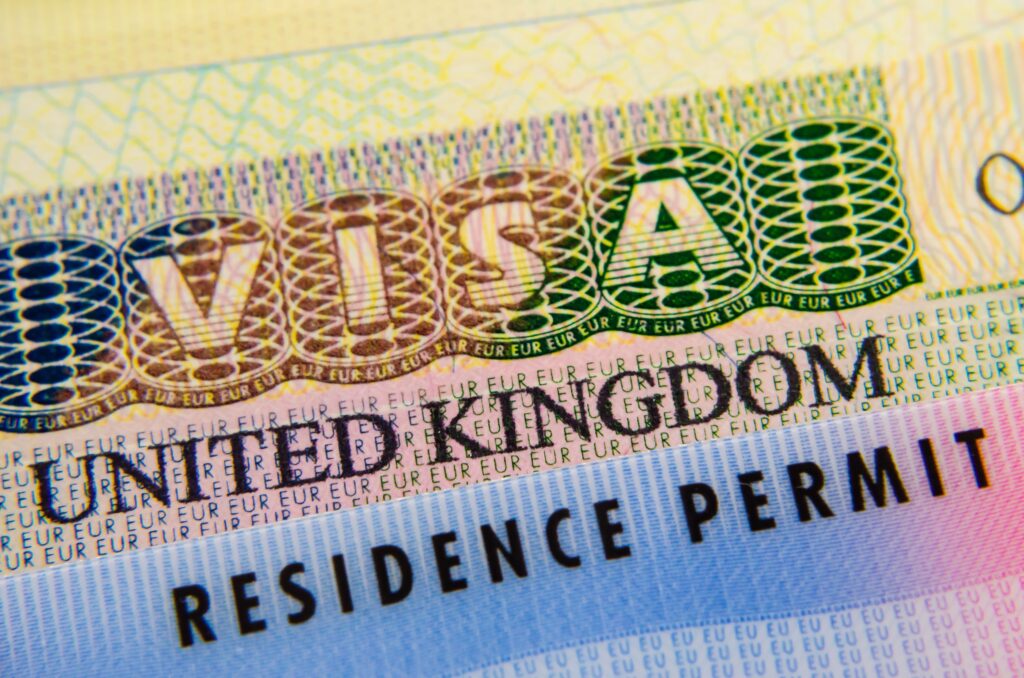Global immigration news round-up
This week, the Global Immigration team at Smith Stone Walters would like to highlight the following recent updates from Canada, Denmark, Finland and the United States.

Canada: Simplified process for IEC participants already in Canada
On 6 May 2025, Immigration, Refugees and Citizenship Canada (IRCC) published details of a new procedure whereby eligible International Experience Canada (IEC) participants who are already in Canada can receive their work permit by mail at a Canadian address. The new system is effective immediately and until 1 December 2025.
Previously, IEC work permit holders already in Canada who were granted a new IEC work permit had to leave Canada to obtain their new work permit. Until last year, it was possible to have the new work permit processed at the border after a brief visit to the United States or St. Pierre and Miquelon, but this practice (“flagpoling”) was banned, effective 24 December 2024.
Now, IEC participants can get their IEC work permit mailed to a Canadian address if they meet all three of the following requirements:
- They were in Canada with a valid IEC work permit when they submitted their IEC work permit application for another participation;
- They have a valid IEC POE letter of introduction (LOI);
- They must request their work permit before their LOI expires;
- They have legal status in Canada when they request to get their IEC work permit by mail;
- Submitting a request to have their work permit printed in Canada does not maintain their legal status;
- If their work permit will expire before they get their new work permit in the mail, they must apply for a visitor record before their current work permit expires;
- They can only start working again once they get their new IEC work permit in the mail.
Most complete requests are processed within five business days. Once the request is processed, the participant will get a notification in their IRCC secure account.
If the request is approved, IRCC will mail the IEC work permit to the Canadian address given. The mailing time is
- extra (meaning it’s not included in the five-day processing);
- based on Canada Post’s service standards.
The IEC work permit becomes active when it’s printed and mailed. If the old work permit expired, the participant can’t start working until you get your new permit in the mail.
To request a new IEC work permit is delivered by mail within Canada, participants must follow the instructions here.
Participants who do not meet the above conditions must leave Canada and re-enter from a country or territory other than the United States or St. Pierre and Miquelon to activate their new work permit.
Denmark: New rules for third-country students in non-state-approved higher educational programmes
On 30 April 2025, the Ministry of Immigration and Integration published an amendment to the ‘Executive Order on the granting of residence and work permits to students’ (the Executive Order on study programmes). The amendment means that students from third-countries in non-state-approved higher educational programmes will no longer be granted limited work permits, six-month job search stays and the right to bring accompanying family.
The changes will apply from 2 May 2025 and only apply to applications for a residence permit as a student or accompanying family submitted from 2 May 2025.
The purpose of the changes is to ensure that residence permits are only granted to third-country students whose real intention is to study in Denmark.
The changes do not apply to foreign nationals who have applied for or been granted a residence permit as a student in a non-state-approved higher educational programme before 2 May 2025. These students will continue to have the right to a limited work permit, a six-month job search stay and the right to bring accompanying family to Denmark. These students will continue with the same rights if they apply for an extension of their residence permit from 2 May 2025.
Nor do the changes apply to foreign nationals who have applied for or been granted a residence permit as an accompanying family member of a student in a non-state-approved higher educational programme before 2 May 2025. These accompanying family members will continue with the same rights if they apply for an extension of their residence permit from 2 May 2025.
Finland: Entry ban and maximum detention period extended
A set of amendments to the Aliens Act is entering into force on 6 May 2025. The amendments lay down more detailed provisions on the definition of legal residence. The amendments also extend the duration of an entry ban and the maximum detention period. There is no transitional period for the amendments.
The purpose of the amendments is to strengthen security and to increase the efficiency of removals from the country in situations where a foreign national is residing illegally in Finland. One of the factors contributing to the amendments is the EU legislation on asylum and return.
Right of residence more strongly linked with enforcement of decision on removal from the country
As a result of the amendments, the possibility to reside in Finland for all customers who have received a decision on removal from the country depends on when the customer’s removal decision becomes enforceable. The decision becomes enforceable when the time limit set for voluntary return starts, or at the point when authorities could remove the person from the country. The decision given to the customer states when the customer must leave Finland at the latest. Residence in Finland becomes illegal when the customer no longer holds a residence permit or a visa, for example, or if the customer has not submitted an application while the previous residence permit was still valid.
The residence of a person who applies for a first residence permit or for an extended permit becomes illegal immediately when the Finnish Immigration Service makes a negative decision on the application and the person has no other valid grounds for residing in Finland. This was the case even before the amendments. In addition, residence becomes illegal in situations where the customer’s current permit expires and the customer has not applied for a new permit before the expiry. Foreign nationals who reside in Finland illegally can no longer make their residence in Finland legal by submitting a new residence permit application. Now, the granting of a permit depends even more strongly on legal residence in the country with a residence permit or a visa, for example.
A customer who receives a negative decision will usually also receive a decision on removal from the country. No new removal decision is issued if a customer applies for a new permit after receiving a negative decision. This will lead to a shorter waiting time for enforcement of removal from the country since its counting starts earlier, on the day when the decision on removal from the country was issued. The police are responsible for enforcing removals from the country.
A person who applies for international protection is not required to reside in Finland legally when he or she submits the application. For a person who has applied for international protection, residence in Finland is legal until a decision has been made on the application. If an applicant receives a negative decision on their asylum application and applies for asylum again, the Finnish Immigration Service decides whether or not the application can be admitted for examination. In such cases, the applicant may not necessarily be allowed to continue residing in Finland despite submitting a subsequent application.
An applicant who has received a negative decision may appeal against the decision but residence in Finland during the appeal process is illegal.
Fixed-term entry bans may be valid for up to 15 years
When the amendments have entered into force, a fixed-term entry ban for up to 15 years may be imposed on a third-country national. Before the amendments, the Aliens Act allowed fixed-term entry bans of up to 5 years to be imposed on third-country nationals. Issuing an entry ban that is valid until further notice is still possible even after the amendments. An entry ban will usually prohibit entry into the entire European Union area and the Schengen area.
Customers who reside in Finland and receive a decision on removal from the country now have an obligation to cooperate. The obligation to cooperate means that the customer is required to cooperate with the authorities in all stages of the removal process. An entry ban may be imposed on a customer who refuses to comply with the obligation to cooperate.
Duration of detention extended
A foreign national may be detained in certain situations laid down in law, such as when there are grounds to suspect that the person will try to avoid being removed from the country. Detaining a person becomes possible also if detention is considered necessary for ensuring public security.
The maximum time for holding a client who has received a decision on removal from the country in detention is extended from 12 months to 18 months. The detention period may be extended from 6 months to 12 months already before issuing a decision on removal from the country if the person is considered a danger to public order and security or to national security.
The Finnish Immigration Service has now been given the right to impose a residence obligation or an obligation to report on an asylum seeker who lives in a reception centre and is at least 18 years of age.
The decisions on detaining a person are made by the police or the border authorities. The Finnish Immigration Service runs the detention units and is responsible for directing, planning and supervising the practical detention unit operations.
New Zealand: Changes to certification requirements for translations of visitor visa supporting documents
From 26 May 2025, supporting document translations for visitor visa applications will no longer need to be certified, bringing New Zealand’s English translation requirements in line with Australia.
Applicants must still provide translations for all supporting documents for visitor visa applications not in English, as well as advise who translated it and the qualification/experience of the translator.
Supporting documents cannot be translated by the applicant, a family member or immigration adviser assisting with the application.
Certified translations are still required for all documents submitted to support an application for a resident visa.
People selected in PEV ballots must apply for visa soon
Immigration New Zealand (INZ) has reminded those selected in the January and February Pacific Engagement Visa (PEV) ballots to lodge their visa applications soon.
The PEV offers the chance to live and work in Australia permanently. PEV holders can access the same benefits as all permanent visa holders to help raise a family. This includes access to public schools, Medicare and subsidised child care.
Countries that held PEV ballot selections in January and February 2025:
- Fiji
- Nauru,
- Papua New Guinea
- Solomon Islands
- Timor Leste
- Tonga
- Tuvalu
- Vanuatu
INZ will first randomly select prospective applicants in a ballot and then invite them to apply. Getting selected in the PEV ballot does not mean applicants have a visa to enter Australia. They still need to apply for a PEV by the 120-day deadline in their Notification of Selection letter.
Those who are invited to apply for the PEV must do so either using the link in their Notification of Selection letter, or through their ImmiAccount.
Applicants can provide other required documents, such as evidence of employment, after lodging their application and completing character and health checks.
United States: DHS Announces the Rescission of Romania’s Designation into the Visa Waiver Program
On 2 May 2025, the Department of Homeland Security (DHS), in consultation with the Department of State, rescinded Romania’s Visa Waiver Program (VWP) designation.
The previous administration designated Romania as a VWP country on 9 January 2025. On 25 March 2025, DHS paused implementation of the VWP in order to conduct a review of Romania’s designation. That review has concluded and DHS decided that Romania’s designation should be rescinded in order to protect the integrity of the VWP and to ensure border and immigration security. Romania may be reconsidered for VWP designation in the future should they meet the statutory eligibility criteria.
The Visa Waiver Program (VWP), administered by the Department of Homeland Security (DHS) in consultation with the Department of State, permits citizens of designated countries to travel to the United States for business or tourism for stays of up to 90 days without a visa. In return, those countries must permit US citizens and nationals to travel to their countries for a similar length of time without a visa for business or tourism purposes.
Updated requirements for submission of form DS-160 at certain consulates
According to notifications published online by several US embassies and consulates, nonimmigrant visa applicants must ensure that the information on their DS-160 visa application form is complete and accurate 72 hours before the scheduled appointment.
In some cases, applicants are being asked to present a printed copy of the DS-160 visa confirmation page with barcode at their interview to prove that they used the same DS-160 barcode number to schedule their appointment.
Applicants who update information on their application and receive a new DS-160 number must update the DS-160 number in their account on the visa appointment system before their consular interview appointment (or at least 2/3 days before the appointment, depending on the requirements stated by the consulate in question).
If the numbers do not match, applicants who scheduled their appointment using an incomplete or incorrect form will not be permitted to do an interview and will be required to reschedule their appointment through USTravelDocs.com using the matching DS-160 barcode number. The consular authorities are unable to modify or update DS-160 barcode numbers on behalf of applicants.
A better way to manage global immigration
Smith Stone Walters is now part of Envoy Global, the leading corporate immigration services provider committed to delivering a better way for companies to manage global immigration.
This partnership will greatly enhance our global footprint and enable us to meet the growing needs of our clients even more effectively.
If you would like to find out more about the enhanced level of global immigration services now available to your business, please contact us today.















